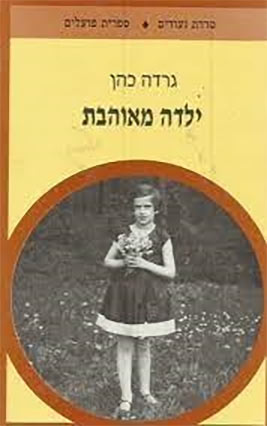
Gerda and Felix
Gerda Cohen’s autobiographical story of her childhood in Bremauer of the 1930s is a eulogy to that haven and a celebration of its abundance. Despite the ominous presence of future events, the focus is on the young girl’s coming of age, beginning when Gerda was three, and following her, meticulously, until the day she “stopped being a child” – when the Jews were expelled from her school. The story begins with Gerda’s mother, a milliner and a fine cook like other women in her family. The descriptions of the kitchen and larders, the wonders of the dinner table, take us directly into the Treidels’ world and make it convincing. This is true memory at work: the careful recollection of the past in all its intensity, unpredictability and wonder.
Somewhat clumsy, Gerda outshines her classmates in writing and by the time she is six, she can recite Goethe and Schiller by heart. Her older brother Felix, on the other hand, is an all-round sportsman. He appoints Gerda goalkeeper, so he can practise football, and reluctantly teaches her how to ride a bicycle. An array of other quirky characters color Gerda’s childhood: the priest’s sisters, who teach her to play the piano as “relief from the dreariness of life”;the neighbor who terrorizes everyone with his dog; Uncle Joseph, the “monster” who takes Gerda on a nightmare holiday to Cologne. However outlandish and cruel this motley bunch may sometimes seem, Gerda remembers each one with compassion.
Told in the third person, the narrative is unsentimental and down-to-earth. The storyteller never loses her sense of humor, describing calamities with the deadpan wit and thick-skinned tone of a Brothers Grimm story. Cohen’s recreation of the longing, pain and beauty of her childhood makes Gerda and Felix an exquisite childhood memoir.

